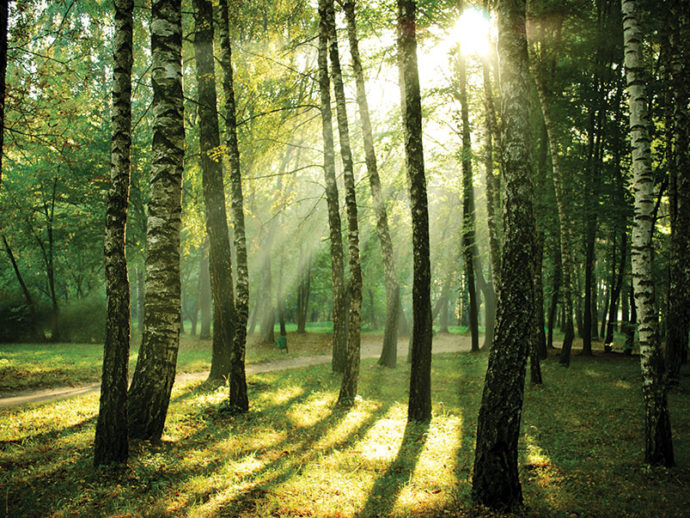
Do you ever look longingly out the window at the nearest green space? We crave time outdoors, and science is beginning to show us why: spending even a brief time in nature is a simple and inexpensive way to detox your mental outlook and improve your health.
Nature and health
Several studies build the case for nature as a stress buffer and promoter of health. Researchers around the world have connected parks, gardens, green areas and forests with lower mortality from cancers, circulatory diseases, strokes and other causes.
Reduction in biomarkers for disease
The practice of Japanese <Shinrin-yoku> (“forest bathing”) consists of spending time walking or contemplating in a forest. Research shows that it helps to lower stress hormone levels and other physiological markers of stress.
When you visit a forest, the natural setting appears to improve the activity of your natural killer cells (your frontline immune defenders).
Lower stress
A study involving more than 11,000 adults showed that individuals who lived more than 1 km (0.6 mi) away from green space were 42 percent more likely to report high stress levels. They also had the worst scores on evaluations of general health, vitality, mental health and bodily pain.
Studies show that participants consistently recover more rapidly and completely from experiment-induced stress after they view plant-rich nature scenes.
Reduced illness
After examining the medical records of 195 family physicians, Dutch researchers reported that the annual rate of 15 of the top 24 disease clusters was lowest among people who had the most green space within a 1 km (0.6 mi) radius from home.
In another study, a mere 10 percent increase in green space over the group average was correlated with greater resiliency against chronic disease.
More caring attitudes
It’s not just our physical health that nature benefits. In a series of Korean brain imaging studies, viewing nature scenes increased activity in areas of the brain associated with heightened empathy and altruistic motivation. In contrast, viewing urban scenes increased activity in the amygdala, an area associated with threat and anxiety.
Better memory
In a number of studies, scientists induced mental fatigue in healthy subjects by giving them demanding thought-based tasks. People who viewed nature scenes had faster reaction time and better memory recall.
Build nature time into your workday
You don’t need to immerse yourself in miles of untouched wilderness to reap the benefits of being in nature. Find a park near your home or workplace or on your route to work and make a point of visiting it before or after work, or during your lunch break.
Walking for an hour in a green urban park can significantly improve mental performance compared to walking on city streets. And as little as 20 minutes in a green space can restore your tired brain and promote happiness.






